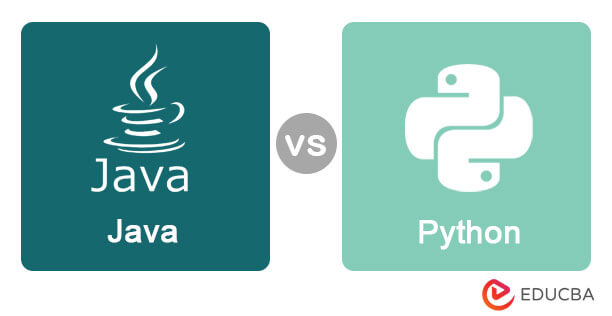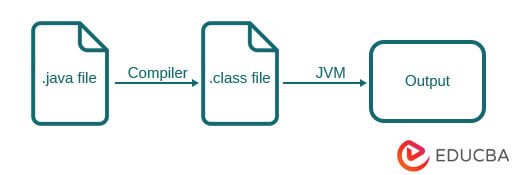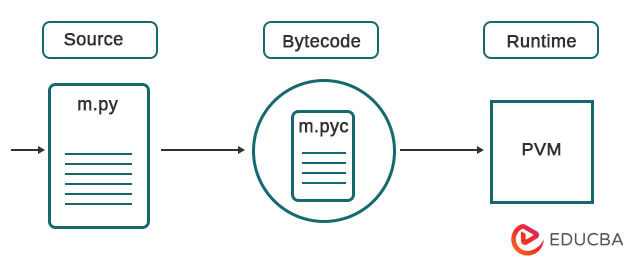Updated July 1, 2023
Introduction to Java vs Python
Java and Python are object-oriented programming languages that can be used for website or web-based application development. Regarding coding and implementation, Java code is longer and more verbose, requires semicolons at the end of each line, and uses static data type declaration, requiring more in-depth coding knowledge. On the other hand, Python is simpler and shorter, does not require semicolons, uses dynamic data type declaration, and is easier to learn for anyone. The following article is a detailed comparison between Java vs Python.
Java and Python: Head-to-Head Comparison (Infographics)
Below are the top 9 comparisons between Java vs Python:
Java vs Python: Key Differences
- Java is more focused on syntax, i.e., even a missing semicolon or curly brace could lead to an error in the output. Python, on the other hand, uses indentation for readability, and there is no need for semicolons or curly braces.
- Java is a statically typed language, which means that the data type of a variable must be explicitly declared, failing on which an error will occur in the program. Contrarily, Python is dynamically typed, allowing variables to be directly assigned a data type during runtime.
- Code in Java tends to be more complex than in Python. A simple “Hello World” program in Java requires more lines (approx 4 lines) of code than in Python (single line).
- If a project requires fast speed, Java is usually the preferred choice. Python is an interpreter and tends to be slower because of assuming the data type of a variable at runtime.
- Java has JDBC (Java DataBase Connectivity), widely used to connect databases like SQL and SQOOP. Python’s database access layers are weaker than Java, making Java a more common choice for enterprises.
- Compared to Python, Java has stronger refactoring support due to its static type system and the universality of Integrated Development Environments (IDEs) in development. However, Python has its own popularity in the talent space for Data Science and DevOps movement.
- Java architecture: Java Virtual Machine (JVM) is an engine that provides a runtime environment for operating the Java code. The JVM translates Java bytecode into machine language and is a part of the Java Run Environment (JRE).
Python architecture:
- Python Interpreter translates the source code into machine-independent bytecode (.pyc).
- Stores .pyc file __PyCache__ folder.
- When one runs the same program (without changes), it will use it without translating again.
- Byte Code (.pyc) will be shipped to PVM. It executes the code.
Java vs Python: Comparison Table
Below are 9 points of comparison between Java vs Python:
| Basis for Comparison | Java | Python |
| Code | Longer lines of code compared to Python
|
|
| Syntax | If one misses the semicolon at the end of the statement, it throws an error.
In Java, one must define a particular block with curly braces; without it, the code will not work. |
In Python, states do not need a semicolon to end.
There are no curly braces, but indentation is mandatory in Python, as it improves code readability. |
| Dynamic | In Java, one must declare the type of data.
|
Python codes are dynamically typed. Thus, there is no need to declare a type of variable. This is known as duck typing.
|
| Speed | In terms of speed, Java is faster and must be preferred for time-bound projects. | Python is slower because it is an interpreter and determines the type of data at runtime. |
| Portability | Due to the high popularity of Java, JVM (Java Virtual Machine) is universally available. | Python is also portable; however, it is less popular than Java. |
| Databases | (JDBC) Java Database Connectivity is highly popular for database connectivity. | Python’s database access layers are weaker than Java’s JDBC. Thus, it is rarely used in enterprises. |
| Easy to use | Compared to Python, Java is relatively difficult to use, as there is no dynamic programming concept, and codes are longer than Python. |
Python codes are shorter than Java and follow dynamic programming. They are not only easy to use but also easy to understand due to the indentation. |
| Practical Dexterity | Java enjoys stronger refactoring support than Python due to its static type system and the universality of IDEs in development. | Python has been widely used in talent for many years and has gained popularity for various reasons, including its use in Data Science and the DevOps movement. |
| Legacy | Java’s long history in the enterprise and its slightly more verbose coding style have led to the creation of larger and more numerous legacy systems than those in Python. | Python has fewer legacy problems, making it easier for organizations to copy and paste code. |
Conclusion
Java and Python have advantages and are powerful in their respective areas. Python is simpler and more succinct, while Java is faster and more portable. Python is also considered an emerging language with a bright future, while Java is widely used with established APIs. When deciding which language to use, companies and developers should consider the specific needs of their project and decide accordingly.
Recommended Article
We hope that this EDUCBA information on “Java vs Python” was beneficial to you. You can view EDUCBA’s recommended articles for more information.






